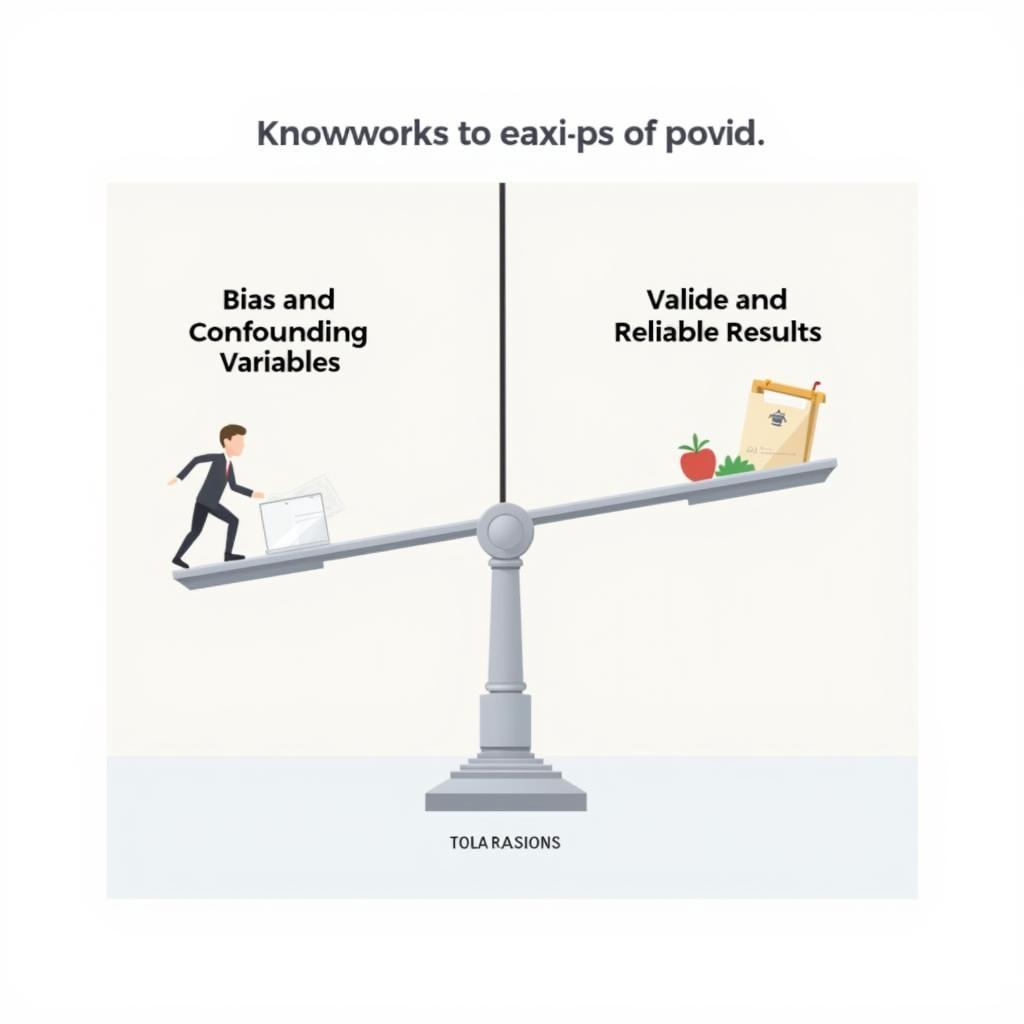Random assignment is crucial in experimental research. It ensures that participants have an equal chance of being placed in either the experimental or control group, minimizing pre-existing differences that could skew the results. This process helps researchers isolate the impact of the independent variable and draw more accurate conclusions about cause-and-effect relationships. Understanding this concept is key to evaluating the validity and reliability of any experimental study.
Researchers in various fields, from psychology to medicine, rely on the principle of random assignment to bolster the integrity of their studies. By randomly assigning participants, researchers can effectively control for confounding variables – unknown or unmeasured factors that could influence the outcome of the experiment. This is what distinguishes true experiments from other research methods and allows for stronger causal inferences. For example, if a researcher is investigating the effectiveness of a new drug, random assignment ensures that the groups are balanced in terms of factors such as age, health status, and lifestyle, preventing these factors from influencing the results and clouding the impact of the drug itself. Now, let’s delve deeper into the reasons why this process is so essential.
Understanding the Power of Random Assignment
Random assignment is the cornerstone of experimental design, allowing researchers to determine whether an independent variable truly causes a change in the dependent variable. It strengthens the internal validity of a study, making it more likely that the observed effects are due to the manipulation of the independent variable and not some other factor. Without random assignment, pre-existing group differences might confound the results, leading to inaccurate conclusions.
Imagine researching the effectiveness of a new teaching method. If you allow students to choose which group they join, those already inclined towards the new method might self-select into the experimental group, while those resistant to change might opt for the control group. This pre-existing difference in motivation, rather than the teaching method itself, could explain any observed differences in performance. Random assignment prevents this issue.
Why Is Random Assignment Critical for Research Studies: Ensuring Impartiality
Random assignment is critical for research studies because it minimizes bias. It ensures that each participant has an equal chance of being placed in any group, preventing researchers from unconsciously (or consciously) assigning participants with certain characteristics to the treatment group. This unbiased approach strengthens the study’s credibility and makes the results more generalizable to a larger population.
Consider research methods in psychology class. Random assignment is a cornerstone of experimental methods discussed. It’s a key concept for understanding the difference between correlation and causation.
How Does Random Assignment Control Confounding Variables?
Random assignment acts as a safeguard against the influence of confounding variables, those sneaky factors that might creep into your study and distort your findings. By randomly distributing participants, you minimize the risk that these variables will systematically differ between your groups. This strengthens your ability to isolate the true impact of the independent variable.
For instance, if you’re studying the impact of a new meditation technique on stress levels, you wouldn’t want one group to consist primarily of individuals who already practice yoga regularly, while the other group consists of individuals with no prior experience in relaxation techniques. This pre-existing difference could significantly influence the results. Random assignment helps level the playing field.
 Controlling confounding variables with random assignment
Controlling confounding variables with random assignment
Random Assignment vs. Random Sampling: Understanding the Distinction
While both involve randomness, random assignment and random sampling are distinct concepts. Random sampling refers to how you select participants from the population of interest, while random assignment refers to how you place those selected participants into different groups within your study. Both contribute to the overall validity and generalizability of the research.
ap psychology research methods often cover these important concepts. Understanding this distinction is essential for students and researchers alike. It highlights the different stages of the research process where randomization plays a vital role.
“Random assignment is not just a statistical technique; it’s a philosophical commitment to fairness and objectivity in research,” says Dr. Evelyn Reed, a prominent researcher in experimental psychology.
Conclusion
Why Is Random Assignment Important In Experimental Research? It’s the linchpin of a well-designed experiment, enabling researchers to isolate the effect of the independent variable and draw meaningful conclusions about cause-and-effect relationships. By minimizing bias and controlling confounding variables, random assignment strengthens the internal validity of the study and increases confidence in the findings.
 The importance of random assignment in research
The importance of random assignment in research
FAQ
- What is the main purpose of random assignment? To minimize the influence of confounding variables and ensure that groups are comparable.
- How does random assignment differ from random sampling? Random sampling is about selecting participants from a population, while random assignment is about placing participants into groups within a study.
- Why is random assignment essential for causal inferences? It helps establish a cause-and-effect relationship between the independent and dependent variables.
- Can you have random assignment without random sampling? Yes, you can have random assignment even if your sample is not randomly selected.
- What are some methods for implementing random assignment? Flipping a coin, using random number generators, or drawing names from a hat are common methods.
- What happens if random assignment is not used in an experiment? The results might be biased and it may be difficult to determine if the independent variable caused the observed changes.
- What is the relationship between random assignment and internal validity? Random assignment strengthens internal validity by reducing the impact of confounding variables.
For further insights on define experimental research and a researcher would test the foot-in-the-door phenomenon by randomly, visit our related articles.
Need support? Contact us at Phone Number: 0904826292, Email: research@gmail.com or visit us at No. 31, Alley 142/7, P. Phú Viên, Bồ Đề, Long Biên, Hà Nội, Việt Nam. We have a 24/7 customer service team.